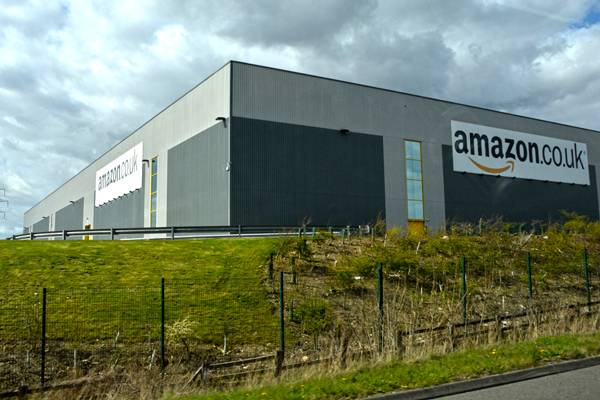Demand for skilled supply chain managers appears to be on the up. Efficient and effective management of supply chains has always been vital to global trade. But the rise of online retail, and customers demanding more rapid delivery of their purchases, has led to an increased need of managers who can achieve these objectives at the lowest cost, says Joseph Xu, assistant professor of operations management at the Tepper School of Business in the US.
 “In ancient times, scribes managed this information using clay tablets or papyrus,” he says. “Today, supply chain managers manage the information using computers, software and other digital technologies like IoT [the Internet of Things].”
“In ancient times, scribes managed this information using clay tablets or papyrus,” he says. “Today, supply chain managers manage the information using computers, software and other digital technologies like IoT [the Internet of Things].”
The online retail giant Amazon, for instance, has an operations track in its leadership development program and, overall, hires about 1,000 MBA graduates every year. Unilever, the consumer goods group, also hires MBAs into supply chain roles as part of its Global MBA Recruitment Channel.
The fundamental need for information hasn’t changed – but with the constant technological advancement of operations, supply chain managers now need digital skills.
Those with data science, digital marketing, software engineering, online payment processing and cybersecurity skills are very much in demand. Seven out of 10 manufacturing executives reported shortages of workers with adequate technology, computer and technical training skills, according to a 2015 Deloitte report.
Over the next decade nearly 3.5 million manufacturing jobs likely need to be filled. The skills gap, in particular the dearth of tech skills, is expected to result in 2 million of those jobs going unfilled.
Post-MBA careers in supply chain: many diverse opportunities
Many people think supply chain management is only in the manufacturing industry, at companies such as Intel, Dell or Raytheon. But MBA graduates can find supply chain jobs in virtually every sector, says Toni Rhorer, associate director of graduate business career services at Arizona State University’s W. P. Carey School of Business.
The jobs are at retail, pharmaceutical, healthcare, distribution and more companies. “The great thing about the field of supply chain management is that there are such diverse career opportunities,” she says.
Technology is the fastest growing industry of interest among W. P. Carey students, who are looking to companies like Amazon, Google, or Walmart eCommerce, where they can combine their supply chain skills with an interest in data analytics to make an impact.
“Great supply chain managers will have a combination of technical and leadership skills,” Rhorer says, including communication.
Technology is changing the work of supply chains and their managers — it enables greater visibility into the supply chain, says the Tepper school’s Xu. This gives managers an unprecedented level of activity tracking and control within their supply chain.
From delivery drones to smart shipping containers and the blockchain, goods that are in transit can now “talk” to supply chain managers, who are able to figure out where they are, what state they are in and their estimated time of arrival at a given location.
Meanwhile, robots now do much of the heavy lifting in logistics warehouses — and much faster and carrying more weight than a human ever could, enhancing productivity. “It will become increasingly important for supply chain managers to design a framework to assign the right tasks between robots and humans within their supply chain, so that they can complement each other,” says Xu.
As technology reshapes the work of the supply chain manager, so-called “soft skills”, such as critical thinking, problem-solving, interpersonal effectiveness and empathy, are increasingly important, says Keely Croxton, associate professor of logistics at Ohio State University’s Fisher College of Business.
“These managers also need to be change agents, curious, disruptive and innovative,” she says.
Consulting is another industry of interest for MBAs at the W. P. Carey school. Besides the large management consulting firms such as McKinsey & Company, there are many niche supply chain consulting firms that are appealing, such as Denali Sourcing Strategies.
Aside from consulting roles, there are three other broad categories of starting positions for those with a degree relevant to supply chains: managerial, analytical and strategic, says Croxton at the Fisher College.
“Opportunities in the first category include supervising a shift at a manufacturing operation or distribution center,” she says. “The second category relies on strong analytical skills and include titles like supply chain planner.
“Some companies also hire our students to take on even more strategic roles that help them create competitive advantage through their supply chain, or think about the future direction the firm could take.”
The Fisher College offers a master’s degree in business logistics and engineering — Croxton concedes that some employers may prefer to hire specialized graduates, rather than more general MBAs.
 Supply chain careers for MBAs: demanding, but rewarding
Supply chain careers for MBAs: demanding, but rewarding
But she adds that companies place a high value on employing people who can interact across functions. “For these managers, an MBA student who has had coursework in all the functional areas, and had the opportunity to think holistically about business strategy and how it informs functional strategies…Is ideal,” she says.
Such companies appear to be willing to pay well for highly-skilled managers. At W. P. Carey, the average salary this year for supply chain was $104,995, with a range of $90,000-$143,000 — higher than the $100,303 average for all functions.
But pay is usually dependent on industry, location and experience. For example, in regions of the US where the cost of living is lower, such as in the southwest, salaries are adjusted accordingly. For a lot of tech companies in California, the pay range is typically $100,000-140,000 for a new MBA grad, Rhorer says.
But MBAs will be expected to work very hard for the compensation. The work of supply chain managers is notoriously demanding, which can have a negative impact on work/life balance.
“The industry itself is transforming,” says Croxton at the Fisher College. “We’re shopping in new ways, and keeping up with the expectations of shoppers is incredibly difficult.
“But in general, working in the supply chain field is no more demanding than working in many other areas of business. It is an exciting field and most people working in it would tell you that no two days are alike, and the daily challenges are what keep it interesting.”
Image credits:
- Header: X2 warehouse by CTsabre14 / CC BY-SA 3.0 (cropped)
- Containers: Public Domain
- Amazon warehouse by Lewis Clarke / CC BY-SA 2.0










